Practical Tips for Caring for Your Bones After an Injury
21 January 2025
Dealing with a bone injury can be a real pain—literally and metaphorically. Whether you've had a fracture, a break, or just a bruised bone, the recovery process can feel like a long, uphill climb. But don’t worry; you’re not alone. Many of us have been there, and with the right knowledge and approach, you can bounce back stronger than ever.
In this piece, I’ll break down some practical, easy-to-follow tips for taking care of your bones after an injury. From making small changes to your diet to incorporating light exercises and mental mindfulness, you'll learn how to support proper healing and avoid potential setbacks. Let’s dive in! 
Understanding Bone Healing: What’s Going On Inside Your Body?
Before we get into the tips, let’s quickly cover what happens when a bone gets injured. Think of your bones as a construction site—when a bone breaks, your body immediately sends out "construction workers" (a.k.a. specialized cells) to repair the damage.Your body goes through three major stages of bone healing:
1. Inflammation Stage: In the first few days after the injury, your body works to stop internal bleeding and creates a blood clot around the area. This serves as the foundation for new bone tissue.
2. Repair Stage: Over the next few weeks, soft tissue begins forming around the break, which eventually hardens into new bone.
3. Remodeling Stage: Finally, over months—or even years—your body reshapes the repaired bone to make it as strong as it was before.
Understanding this process can help you appreciate why proper care is crucial. Now that you know what’s going on under the surface, let’s explore the practical steps you can take to support your body. 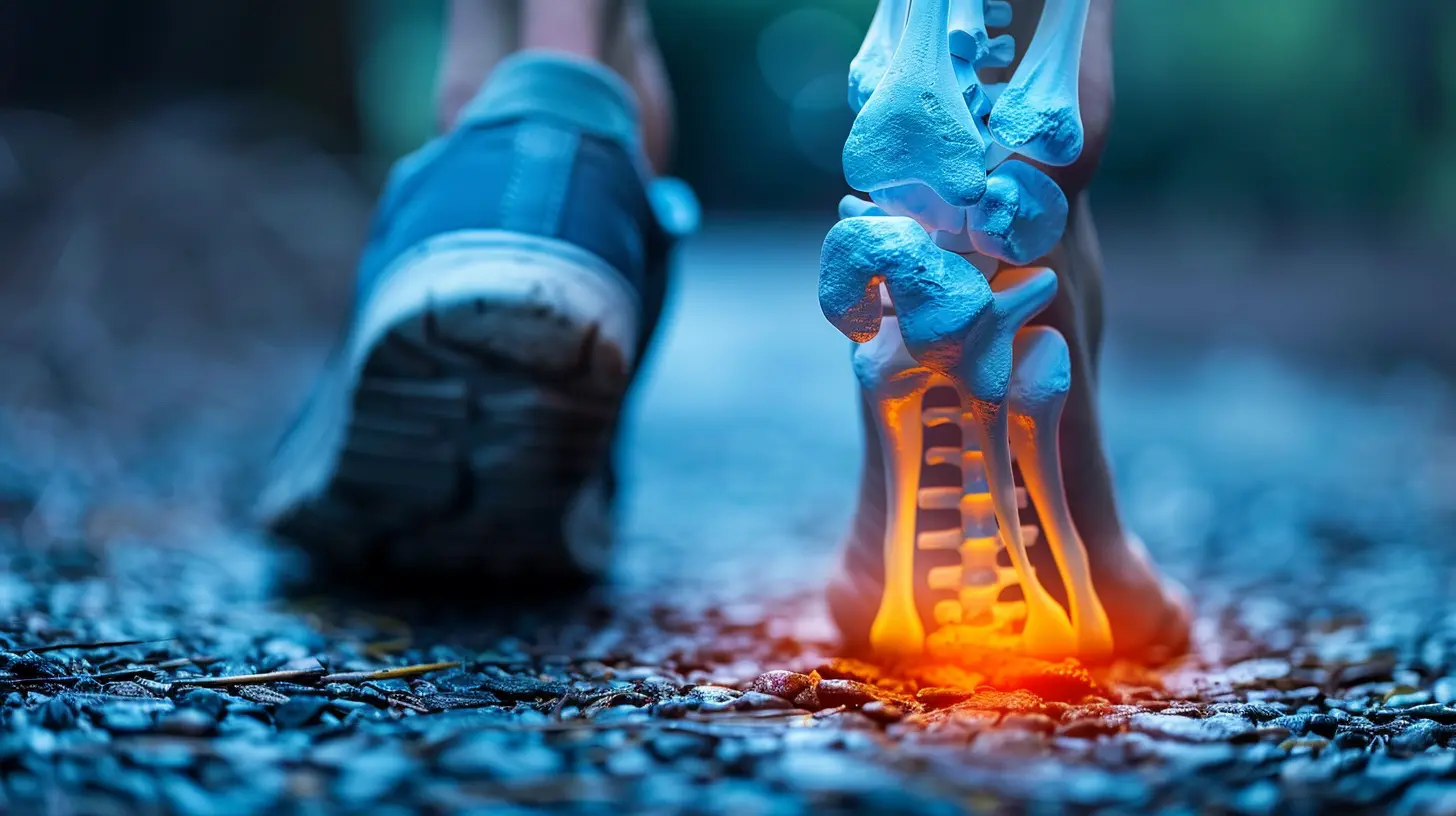
1. Follow Your Doctor’s Advice Religiously
I know this might sound obvious, but it’s worth saying: your doctor knows best. If they’ve given you a cast, told you to rest, or prescribed physical therapy, don’t brush it off. Ignoring professional advice can delay healing or even set you up for reinjury.Instead, think of your doctor as your GPS. They’re mapping out the best route for you to get back to normal—and avoiding unnecessary detours. Got concerns or questions about their recommendations? Always ask. It’s your body, and you have the right to understand everything about your treatment plan. 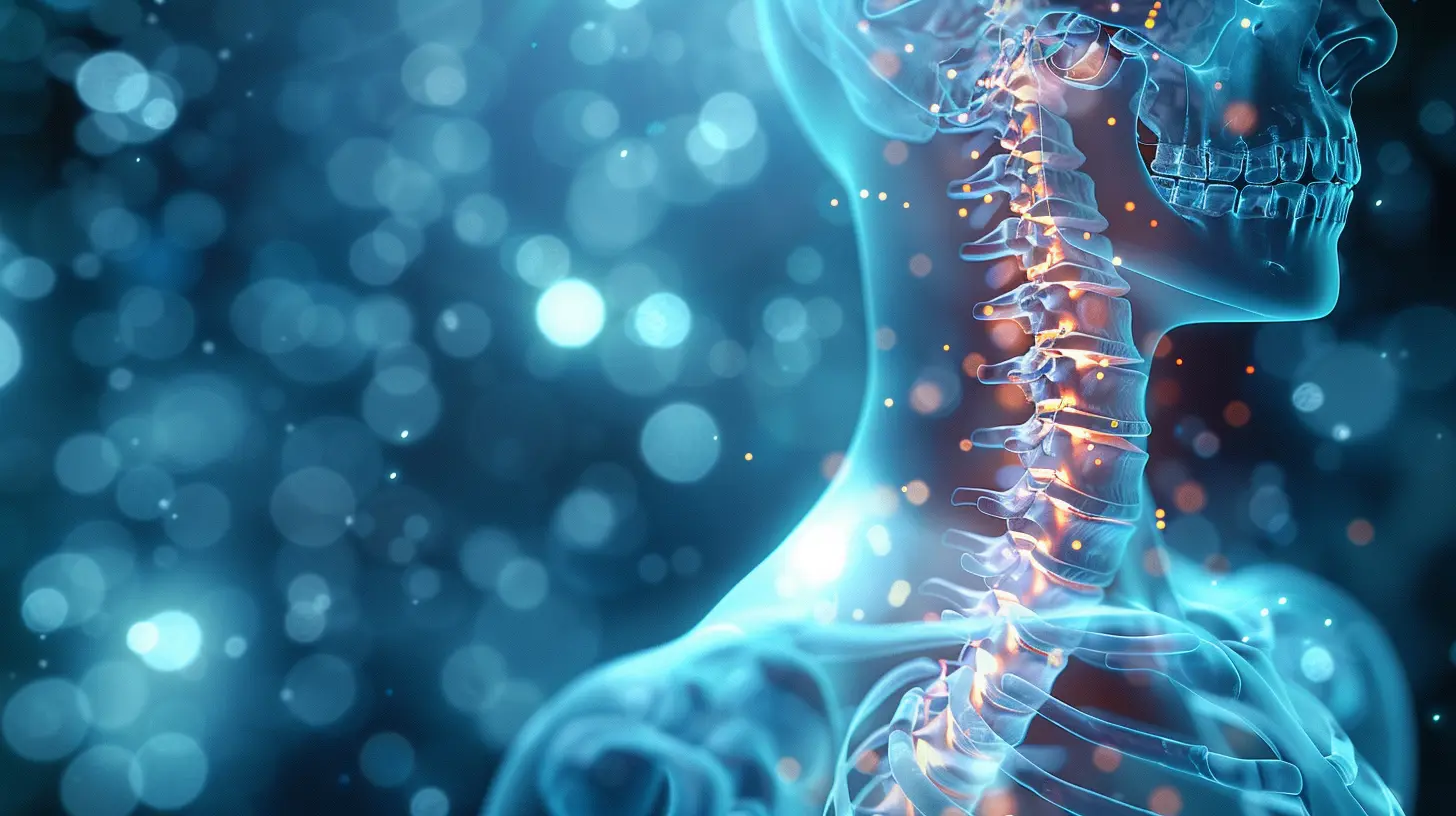
2. Nourish Your Bones: Eat Like a Healing Pro
Ever heard the phrase "you are what you eat"? When it comes to bone healing, this couldn’t be more on point. Your body craves specific nutrients to rebuild and strengthen injured bones:- Calcium: This one’s a no-brainer. Calcium is the building block of bones, so make sure you’re loading up on dairy products like milk, cheese, and yogurt. Not a fan of dairy? No problem—leafy greens like kale and spinach are solid alternatives.
- Vitamin D: Think of this as calcium’s sidekick. Without enough vitamin D, your body can’t properly absorb calcium. Spend a little time soaking up the sun or incorporate foods like fatty fish, mushrooms, and fortified cereals into your diet.
- Protein: Your bones are made up of more than minerals—protein plays a big role in rebuilding connective tissue. Lean meats, beans, nuts, and eggs are all excellent sources.
- Vitamin C: This vitamin boosts collagen production, which helps form the supportive structure of your bones. Snack on oranges, strawberries, or bell peppers to up your vitamin C game.
Remember, your body is like a machine—it needs the right fuel to keep running efficiently. So eat balanced meals and drink plenty of water to keep everything moving smoothly. 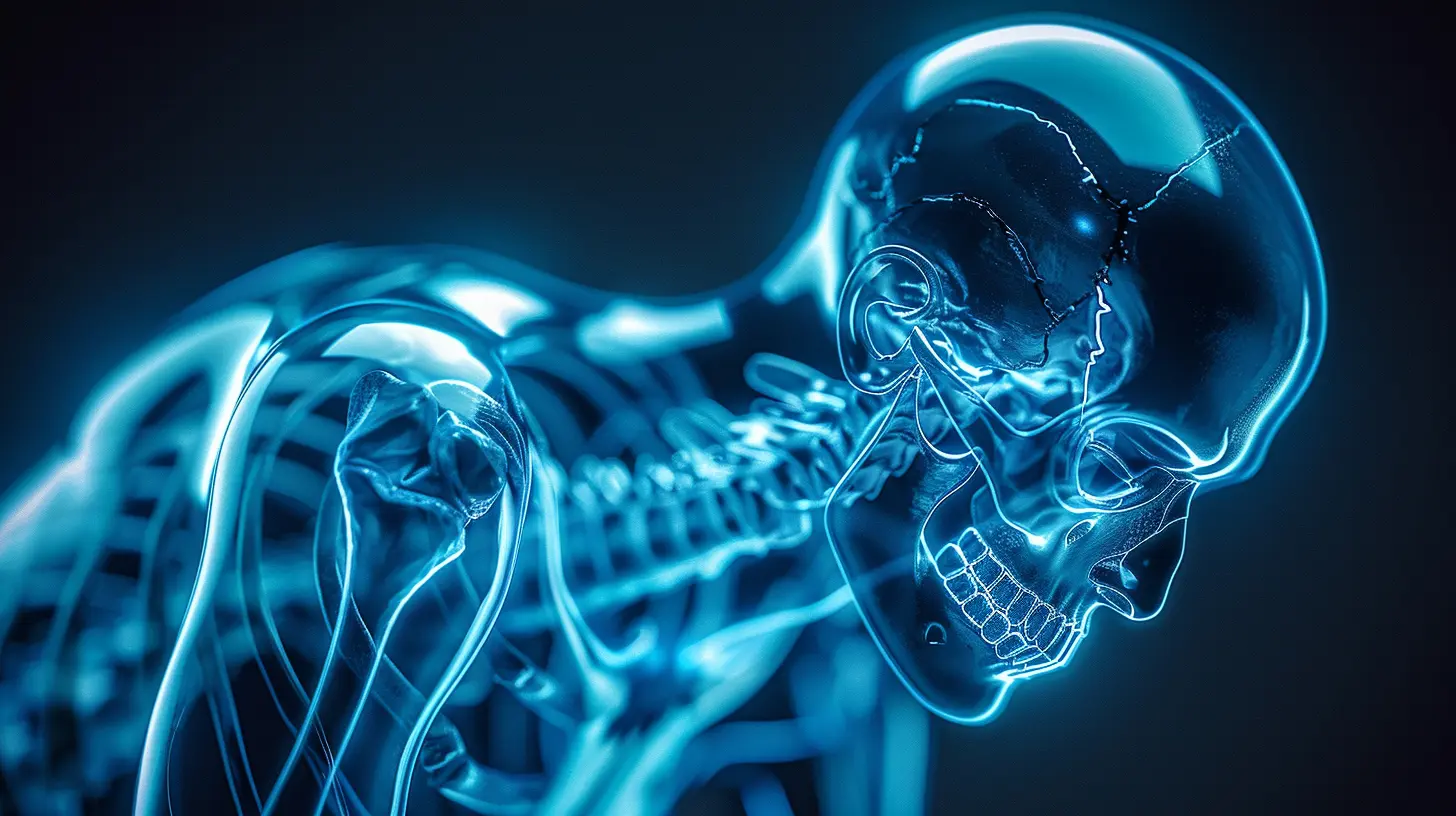
3. Stay Active, But Don’t Overdo It
I get it—you’re probably itching to get back to your normal routine. But when it comes to recovering from a bone injury, slow and steady wins the race.Start with low-impact exercises once your doctor gives the green light. Gentle movements like walking, swimming, or light yoga can promote blood flow to the injured area without causing additional stress.
However, don’t rush back into high-impact activities like running or weightlifting. Think of your bones like wet cement during the healing process—if you apply too much pressure too soon, you risk undoing all the progress you’ve made.
4. Rest and Sleep: Your Body’s Secret Weapon
Ever heard someone say, “Sleep is the best medicine?” They’re not kidding. Rest is when your body does most of its repairing and rebuilding.Aim for 7–9 hours of good-quality sleep every night. If you’re struggling to catch those Z’s, try creating a relaxing bedtime routine. This could include dimming the lights, cutting out screen time an hour before bed, or sipping on a warm cup of chamomile tea.
Don’t forget to listen to your body during the day, too. If you feel tired, give yourself permission to rest. Rehabilitation isn’t a sprint—it’s a marathon.
5. Mind Your Mental Health
Bone injuries aren’t just a physical challenge—they can take a toll on your mental health, too. Feeling frustrated, anxious, or even a bit down is completely normal during recovery.But don’t let those emotions weigh you down. Staying positive (or at least neutral) can make the healing journey a bit easier. One trick? Focus on what you can do instead of what you can’t. For example, maybe this downtime is the perfect opportunity to catch up on that novel you’ve been meaning to read or binge-watch your favorite TV series guilt-free.
Meditation, journaling, and talking to supportive friends or family members can also help you cope. And if you’re feeling overwhelmed, consider reaching out to a counselor or therapist—there’s no shame in taking care of your mental well-being!
6. Avoid Bad Habits That Slow Healing
Did you know certain habits can hold back your recovery? Here’s what to avoid:- Smoking: Smoking reduces blood flow, which can delay healing. If you’ve been looking for a sign to quit, consider this your nudge in the right direction.
- Alcohol: While the occasional drink likely won’t hurt, excessive alcohol can interfere with your body’s ability to absorb key nutrients.
- Neglecting Follow-Up Appointments: I know life gets busy, but skipping a follow-up appointment with your doctor means missing out on valuable insights into your progress.
Think of these habits as roadblocks on your path to recovery. Removing them clears the way for faster and smoother healing.
7. Consider Supplements (If Necessary)
Sometimes, even the healthiest diet isn’t enough to meet your body’s needs after an injury. This is where supplements can step in.Calcium and vitamin D supplements are the most common recommendations for bone health. However, before you start popping pills, always consult your doctor or nutritionist. They’ll help determine the best dosage for you (because too much of a good thing can actually be harmful).
8. Wear Protective Gear in the Future
Let’s face it—no one wants to go through a bone injury twice. If your injury happened during a sport or activity, it might be time to invest in some protective gear. Whether it’s elbow pads, knee pads, or wrist guards, taking preventative measures can save you from future heartache (and pain).Wrapping It Up
Caring for your bones after an injury doesn’t have to feel overwhelming. By following these practical tips—listening to your doctor, embracing a nutrient-rich diet, staying active yet cautious, and prioritizing rest—you can give your body the best chance to heal properly. Throw in some mindfulness and good habits, and you’re on the road to recovery.Remember, healing takes time, so don’t rush the process. Be patient with yourself and trust that every small step you take is a step toward stronger, healthier bones. You’ve got this!
all images in this post were generated using AI tools
Category:
Bone HealthAuthor:

Holly Ellison
Discussion
rate this article
11 comments
Vincent McKee
True healing begins when we listen to our bodies and nurture them wisely.
February 25, 2025 at 5:36 AM

Holly Ellison
Absolutely! Listening to our bodies is essential for effective healing and recovery, especially for our bones.
Corin Jackson
Caring for bones post-injury involves more than just rest; prioritize balanced nutrition, gentle exercises for strength, and consistent follow-up with healthcare providers to ensure optimal recovery and prevent future injuries.
February 7, 2025 at 5:39 AM

Holly Ellison
Thank you for your insightful comment! You're absolutely right—balanced nutrition, gentle exercises, and regular follow-ups are crucial for effective bone recovery.
Callista Palmer
Great tips! Prioritizing bone health post-injury is essential. Implementing these strategies can significantly aid recovery. Thank you for sharing this valuable information!
January 31, 2025 at 4:06 AM

Holly Ellison
Thank you for your feedback! I'm glad you found the tips helpful for recovery. Prioritizing bone health is indeed crucial!
Greyson McDowney
In the gentle dance of healing, nurture your bones with care, Whisper love through movement, let rest be your prayer. Each tip, a step on your journey to repair.
January 29, 2025 at 3:58 AM

Holly Ellison
Thank you for your beautiful words! Healing is indeed a delicate journey, and nurturing our bones with love and care is essential. Your poetic insight adds depth to the conversation on recovery.
Aiden Sawyer
Great tips! It’s easy to overlook bone health during recovery, but these practical suggestions are super helpful. I especially love the reminders about nutrition and gentle movement. Taking care of our bones is so important, and every little effort counts. Thanks for sharing!
January 28, 2025 at 4:11 PM

Holly Ellison
Thank you for your kind words! I'm glad you found the tips helpful—bone health is indeed crucial during recovery. Every small effort makes a difference!
Kaitlyn McCloud
Embrace healing; your bones will thrive with care!
January 28, 2025 at 4:21 AM

Holly Ellison
Thank you! Prioritizing healing is essential for strong bone recovery.
Amira McCloud
Sure, here's a sassy and bold comment for you: Who knew bones needed drama too? After an injury, it's time to pamper those poor things! Obsess over your calcium, strut your rehab, and remember: your bones aren't glass. Treat them like the champions they are and they'll carry you through life!
January 27, 2025 at 4:22 PM

Holly Ellison
Thanks for the fun comment! Yes, bones deserve some TLC too—let's keep them strong and fabulous!
Stella King
Taking care of your bones post-injury is non-negotiable. Prioritize nutrition, stay active within limits, and follow professional guidance. Empower yourself with knowledge and proactive habits—your recovery and long-term bone health depend on it!
January 26, 2025 at 4:54 AM

Holly Ellison
Thank you for highlighting the importance of nutrition and professional guidance in bone recovery! Empowering yourself with knowledge is indeed crucial for long-term health.
Sofia Bailey
This article provides essential guidance on post-injury bone care, emphasizing the importance of nutrition, physical therapy, and gradual activity resumption. It highlights how proper calcium intake and weight-bearing exercises can enhance healing, while also addressing the psychological aspects of recovery. A valuable resource for holistic bone health management.
January 23, 2025 at 3:45 AM

Holly Ellison
Thank you for your thoughtful feedback! I'm glad you found the article valuable for holistic bone care and recovery.
Victoria McMichael
Great tips! Caring for our bones is so important, especially after an injury. With these practical suggestions, we can bounce back stronger and healthier! Keep shining! 🌟
January 22, 2025 at 4:04 AM

Holly Ellison
Thank you! I'm glad you found the tips helpful for recovery and bone health! 🌟
Zevonis Wilkins
Who knew bones were like the drama queens of the body? Care for them, and they’ll go back to being strong and silent. Just don’t forget to ‘bone’ up on your calcium!
January 21, 2025 at 3:24 PM

Holly Ellison
Great analogy! Caring for our bones is essential, and calcium plays a key role in their recovery. Thanks for the reminder!
MORE POSTS
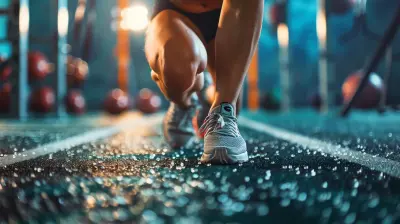
The Benefits of Cross-Training for Full-Body Fitness

The Role of Bone Broth in the Paleo Diet

How to Use Mindfulness to Manage Emotional Eating

The Power of Proper Nutrition in Muscle Recovery

Boosting Mental Health and Happiness in Later Years

The Relationship Between Fiber and Cholesterol Levels
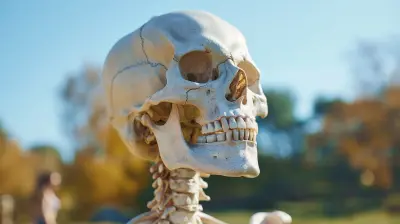
How Poor Posture Can Lead to a Weaker Skeleton
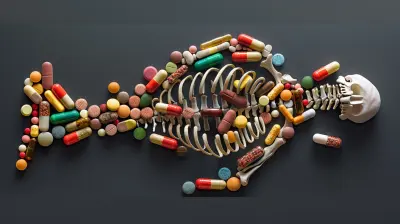
Can Your Medications Be Affecting Your Bone Strength?